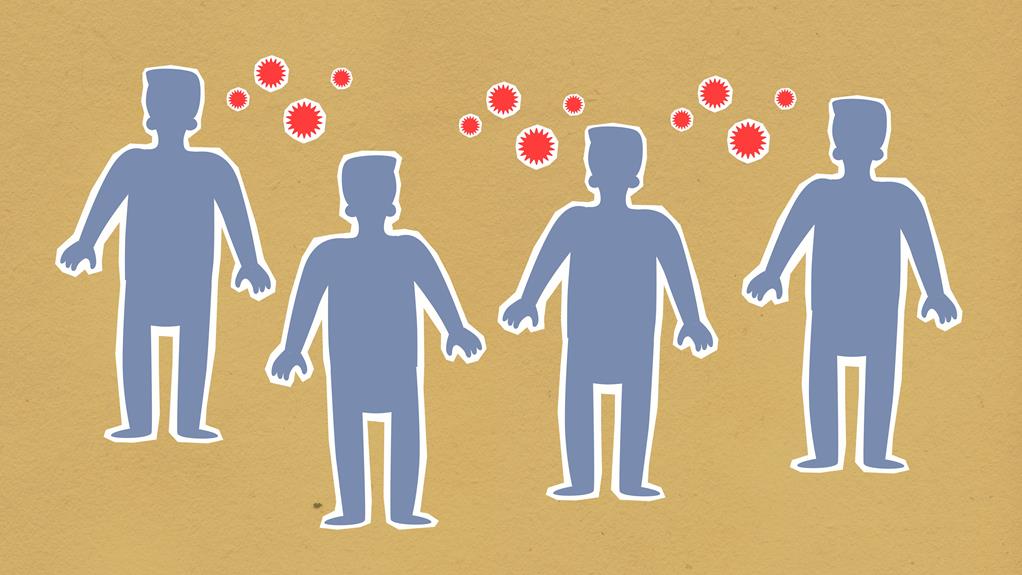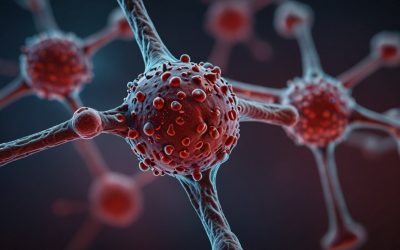When you’re armed with a quill in a world of digital warfare, you might feel out of your depth discussing the intricate ballet of antiviral approaches against viral attacks. Yet, here you are, poised to understand the sophisticated strategies that modern medicine employs to combat these microscopic invaders. As you navigate through the defenses your body naturally erects, you’ll also learn about the pharmaceutical weaponry designed to target viral replication and assembly. It’s a chess game between pathogen and protector, with moves and countermoves that have evolved over centuries of medical research and practice. What you’ll find intriguing is not just how these antivirals work, but also the promise they hold for the future. How does one outmaneuver an adversary that is constantly changing the rules? The answer lies just beyond the horizon of current knowledge, where innovation meets necessity in a race to keep humanity one step ahead of the next viral onslaught.
Key Takeaways
- Antiviral drugs designed to disrupt viral replication
- Host-directed antivirals targeting host factors essential for immune responses
- Boosting immune response through innate and adaptive mechanisms
- Advancing vaccination technologies and improving vaccine design
Understanding Antiviral Drugs

Antiviral drugs are designed to disrupt viral replication by targeting specific viral proteins or by enhancing the host’s innate and adaptive immune responses, offering a precise and multifaceted approach to combating viral infections. These compounds focus on antiviral drugs targeting mechanisms that are crucial for the replication of the viral genome, thus halting the virus life cycle. By inhibiting viral replication, they prevent the spread of the virus within the host and reduce the severity of the infection.
Furthermore, certain antiviral agents are engineered to augment host cell factors that are pivotal in the innate and adaptive immune responses. These responses are essential for recognizing pathogen-associated molecular patterns (PAMPs) and initiating a cascade of defense mechanisms to clear viral infections. The development of antiviral drugs that modify host cell pathways—such as lipid, glucose, and polyamine metabolism—exploited by viruses, provides an innovative strategy to counteract viral proliferation and pathogenesis.
Host-directed antivirals offer broad-spectrum activity against a multitude of viral agents. Due to their targeting of host factors with low genetic variability, these drugs are less likely to face the challenges of drug resistance, which is a significant advantage over conventional therapies. Notably, approved antiviral drugs that manipulate host metabolism can impede +ssRNA viruses, which rely heavily on hijacking host metabolic pathways for viral genome replication and pathogenesis.
Innovative Therapeutic Strategies
Building on the foundation of understanding antiviral drugs, we now explore innovative therapeutic strategies that aim to enhance treatment efficacy and circumvent the challenges of resistance. You’ll find that a pivotal area in developing antiviral drugs involves targeting host factors. By focusing on the cellular machinery that viruses exploit, therapeutic agents can achieve broad-spectrum inhibitory activity, thereby lowering the odds of resistance due to the stable genetic nature of host cells.
One analytical approach includes the application of small interfering RNAs (siRNAs) to selectively silence viral gene expression. This precision-guided mechanism of action disrupts the life cycle of the virus without affecting host cellular functions. Additionally, leveraging the RNA-dependent RNA polymerase, a key enzyme in viral replication, offers a targeted method to stifle the viral spread.
The innovative use of RNA interference and CRISPR/Cas systems exemplifies the forward-thinking nature of antiviral therapies. These methods can degrade the viral genome, providing a comprehensive antiviral activity against a plethora of DNA and RNA viruses. The 3D8 scFv, for instance, showcases the potential for broad-spectrum antiviral agents by attacking viral nucleic acids directly.
As you aspire to serve the community, consider these therapeutic approaches as vital tools in the fight against viral diseases. Future directions, such as personalized medicine, will further tailor antiviral agents to individual patient needs, augmenting the precision and effectiveness of treatments. Likewise, artificial intelligence stands to revolutionize antiviral drug development, streamlining the discovery and optimization of new therapeutic compounds. This multifaceted strategy ensures a robust defense against viral attacks, safeguarding global health.
Boosting Immune Response

To effectively combat viral infections, it’s essential to bolster the body’s immune response through both innate and adaptive mechanisms. The innate immune response serves as the first line of defense, detecting and responding to viral pathogens rapidly. By modulating this system, you can enhance the host immune system’s ability to recognize and respond to virus infection more efficiently. This is particularly crucial during the initial stages of infection when the virus begins to replicate and spread.
Understanding the interplay between viruses and host factors is key to developing strategies that boost the innate and adaptive responses to viral infection. For instance, host-directed antiviral drugs can target specific metabolic pathways or immune responses, thereby strengthening the host antiviral defense mechanisms. Such interventions can inhibit viral replication and mitigate the spread of the virus within the host.
On the other hand, the adaptive immune system’s role in combating viral infections involves a more targeted approach. By enhancing the adaptive immune response against viral pathogens, you can improve the immune system’s ability to clear infections. This involves the generation of virus-specific antibodies and the activation of cytotoxic T cells, which are fundamental in the eradication of virus-infected cells.
In your role, dedicated to serving others, it’s imperative to focus on both aspects of the immune system. By utilizing a comprehensive approach that combines both innate and adaptive immune enhancements, you can significantly improve the host immune responses to viral infection, thereby aiding in the battle against these pervasive threats.
Vaccination Developments

Advancing vaccination technologies have become pivotal in managing and preventing the spread of infectious diseases such as HIV and SARS-CoV-2. As you explore the realm of vaccination developments, you’re not just delving into a scientific challenge; you’re contributing to global health and safeguarding communities worldwide.
The development of new vaccines has been accelerating, driven by the need for more effective strategies to combat prolific viruses. Here’s how recent efforts are shaping the future of antiviral therapy:
- Targeted immune response:
- *Vaccine efficacy*: Enhancements in vaccine design aim to improve the specificity and strength of the immune response against viral pathogens.
- *Innate immunity*: Novel vaccines are exploring ways to stimulate the body’s first line of defense, potentially offering broad protection against diverse viral strains.
- Innovative approaches:
- *Immune system stimulation*: Adjuvants and other immune-modulating agents are being developed to boost the effectiveness and longevity of vaccine-induced immunity.
- *Prevention of viral infections*: Cutting-edge research focuses on identifying key viral antigens and mechanisms to prevent the virus from taking hold in the first place.
Every step taken in the development of vaccines is a stride towards enhancing antiviral therapy. By honing the immune response and leveraging innate immunity, you’re part of a critical effort to curtail the impact of viruses. The journey toward the prevention of viral infections and robust immune system stimulation is both a scientific endeavor and a profound act of service. Remember, with each vaccination development, you’re not just advancing medicine; you’re fortifying the health of humanity.
Future Research Directions
As you consider the progress made in vaccination developments, it’s essential to look ahead at the research avenues that promise to further revolutionize antiviral therapies. Future efforts must focus on discovering new antiviral compounds with robust efficacy and safety, essential for combating the dynamic nature of viral pathogens. The development of new antiviral drugs hinges on a deep understanding of molecular mechanisms, particularly those involving the viral life cycle and host cell interactions.
Targeting the host cell rather than the virus itself emerges as a strategic approach to circumvent viral resistance. By identifying and inhibiting host proteins crucial for viral entry or gene expression, researchers aim to create broad-spectrum antivirals with enduring effectiveness. RNA interference (RNAi), a method to silence specific viral RNA sequences, is another promising area. By blocking the replication of viral RNA, RNAi can prevent the proliferation of the virus within the host.
The analytical investigation into viral gene expression and the mechanisms of viral entry opens pathways for precision-designed therapies that can be tailored to individual viral infections. Advances in artificial intelligence facilitate the rapid analysis of large data sets, expediting the discovery of potential antiviral drug targets and their corresponding small-molecule inhibitors.
Collaboration is pivotal; a synergy between academia, pharmaceutical industries, and regulatory bodies accelerates the translation of research into viable treatments. Lastly, the advent of personalized medicine and combination therapies is set to enhance antiviral treatment regimes, offering customized care to meet the unique viral challenges faced by individuals. The future of antiviral research is poised to deliver innovative, targeted solutions to those in need, with the ultimate goal of safeguarding global health against viral threats.











